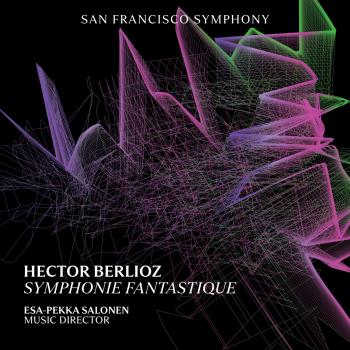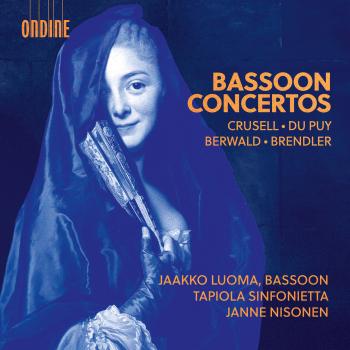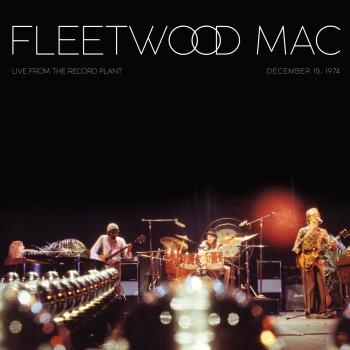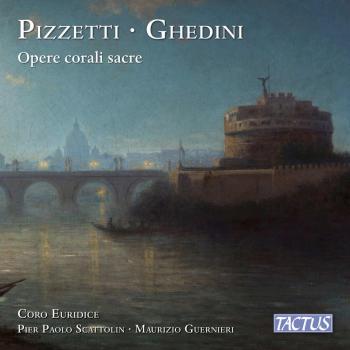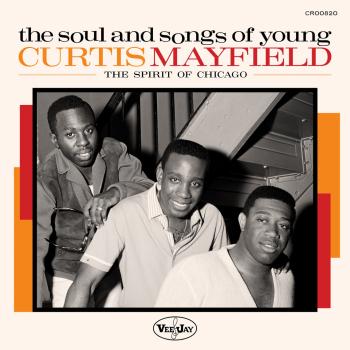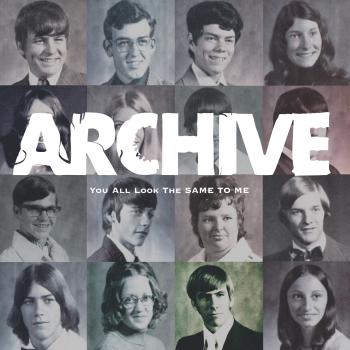
Ravel: The Complete Works for Solo Piano (Remastered) Walter Gieseking
Album info
Album-Release:
2001
HRA-Release:
26.10.2017
Label: Warner Classics
Genre: Classical
Subgenre: Instrumental
Artist: Walter Gieseking
Composer: Maurice Ravel (1875-1937)
Album including Album cover
I`m sorry!
Dear HIGHRESAUDIO Visitor,
due to territorial constraints and also different releases dates in each country you currently can`t purchase this album. We are updating our release dates twice a week. So, please feel free to check from time-to-time, if the album is available for your country.
We suggest, that you bookmark the album and use our Short List function.
Thank you for your understanding and patience.
Yours sincerely, HIGHRESAUDIO
- Maurice Ravel (1875 - 1937).: Menuet antique, M. 7:
- 1 Menuet antique, M. 7 05:46
- Pavane pour une infant défunte, M. 19:
- 2 Pavane pour une infant défunte, M. 19 05:59
- Jeux d'eau, M. 30:
- 3 Jeux d'eau, M. 30 04:37
- Sonatine, M. 40:
- 4 I. Modéré 04:17
- 5 II. Mouvement de menuet 03:18
- 6 III. Animé 03:34
- Miroirs, M. 43:
- 7 I. Noctuelles 04:19
- 8 II. Oiseaux triste 03:26
- 9 III. Une barque sur l'océan 05:23
- 10 IV. Alborada del gracioso 05:53
- 11 V. La vallée des cloches 05:01
- Gaspard de la nuit, M. 55:
- 12 I. Ondine 06:02
- 13 II. Le Gibet 05:49
- 14 III. Scarbo 08:59
- Menuet sur le nom de Haydn, M. 58:
- 15 Menuet sur le nom de Haydn, M. 58 01:58
- Valses nobles et sentimentales, M. 61:
- 16 I. Modéré - Très franc 01:14
- 17 II. Assez lent (avec une expression intense) 01:37
- 18 III. Modéré 01:23
- 19 IV. Assez animé 00:55
- 20 V. Presque lent (dans un sentiment intime) 01:06
- 21 VI. Vif 00:38
- 22 VII. Moins vif 02:24
- 23 VIII. Epilogue (Lent) 03:14
- Prelude in A Minor, M. 65:
- 24 Prelude in A Minor, M. 65 01:20
- A la manière de... Borodine, M. 63:
- 25 A la manière de... Borodine, M. 63/1 01:25
- 26 A la manière de... Chabrier, M. 63/2 02:01
- Le Tombeau de Couperin, M. 68:
- 27 I. Prélude 03:15
- 28 II. Fugue 04:09
- 29 III. Forlane 05:48
- 30 IV. Rigaudon 03:10
- 31 V. Menuet 05:18
- 32 VI. Toccata 03:53
Info for Ravel: The Complete Works for Solo Piano (Remastered)
Walter Gieseking, though German, was born in the French city of Lyon and is admired above all as a brilliant and entrancingly perceptive interpreter of Debussy and Ravel. “He created a sound world in this repertoire that had no precedent, except perhaps in the composers’ imaginations,” wrote Gramophone, while the New York Times has said that: “His playing, though focused and rhythmically exact, proves that deep concentration does not have to be intense… There is never a sense of strain or tension; everything is natural and full of character.”
„Newly transferred from the original master tapes, Walter Gieseking's 1954 EMI Ravel cycle gains in color and amplitude over previous "unofficial" CD editions of these long-unavailable recordings. Indeed, his vocal grimaces at loud moments register more clearly. More to the point, Gieseking's pellucid touch and direct brain-to-finger equilibrium control Ravel's cruelly exposed, deceptively difficult textures with effortless elegance in Le Tombeau de Couperin, Jeux d'Eaux, the Sonatine, Valses Nobles et Sentimentales, and most of Miroirs (though Alborada del gracioso could use more sultry snap). True, Gaspard de la Nuit's outer movements lack the hazy sweep of Gieseking's famous pre-war 78s. But the short pieces embody lapidarian marvels, like the Pavane's perfect melody/accompaniment balances (only a pedaling genius like Gieseking can achieve this without pedal!) and the Haydn Menuet's elusive polyphony voiced to a tee. Even when he's in less than tip-top form, Gieseking still clicks into Ravel's sound world as if both composer and interpreter shared genetic code.“ (Jed Distler)
Walter Gieseking, piano
Produced by Geraint Jones, Walter Legge
Digitally remastered
Walter Gieseking
In 1998 an article appeared in The Times claiming the non-existence of talent. Just as the eminent psychologist R.D. Laing explained that ‘schizophrenia’ was a fabricated term for an analysable condition, so the Times writer stressed that talent was a fancy description for hard work. For him the success of a musical star – he took the violinist Anne-Sophie Mutter as his example – had more to do with perspiration than inspiration.
This curious and dogmatic statement came to mind as I listened once again to Walter Gieseking (1895–1956), an artist of inexplicable gifts. Few pianists have possessed more natural reflexes or a greater capacity to learn and memorise at lightning speed. His only official training came during his years at the Hanover Conservatoire (1911–16), where he had a two-year stint with Karl Leimer (a teacher who instilled in him a belief that playing was essentially a mental rather than a physical process). Stories of Gieseking’s ability to learn say Mozart’s Concerto K467 in five days and to perform Grieg’s complex Ballade after running through it a dozen times were supported by his own comments, such as ‘talent goes in inverse ratio to the necessity for practice’, ‘the dreamer’s intuition is far more sure than intellectual research’ and ‘I never do technical exercises for I consider them almost wholly superfluous’.
After his Berlin debut recital in 1920, Gieseking’s fame spread like wildfire. Already, and ironically as a German, he showed a rare sympathy for French music, for Debussy and Ravel. Indeed, Gieseking and Debussy are as synonymous as Schnabel and Beethoven or Rubinstein and Chopin. His phenomenal aural sensitivity resulted in performances of Debussy that led one commentator (writing in the American Record Guide in 1992) to describe Gieseking as being like "Monet in Giverny,", his playing seeming "to breathe fragrance". He achieved a "wealth of hues within a narrow dynamic compass" with "endless refinements of touch and pedalling". Indeed, my own first piano teacher, Ronald Smith, returned from one of Gieseking’s London recitals both bemused and elated ("I’m sure he pedalled a hundred times in one bar!"). Gieseking was in every sense a magician of the keyboard.
Gieseking’s childhood was spent in southern France and in Italy, and that had a profound bearing on his musical direction and choice of repertoire. His supremely natural talent developed largely unfettered by academic study and already in his German debut recital in 1920 his superfine artistry in Debussy and Ravel was such that he was invited to stay and give seven concerts rather than a single recital. An intensive successful international career followed immediately, though it was blighted by political factors: he was blacklisted as a Nazi sympathiser, a taint which, even as late as 1949, brought him continued hostility in America, and which made him confine his career for some time to Europe, South America and Japan. However, a return to America in 1955 (an all-Debussy programme at Carnegie Hall) was rapturously received. Gieseking also taught masterclasses at the State Conservatoire in Saarbrücken, where he passed on the philosophy of his teacher Karl Leimer.
Gieseking’s repertoire was immense (he gave a New York recital in 1930 devoted entirely to contemporary music) and he recorded the complete solo piano music of Mozart (1953–54) and Ravel (1954) and virtually the complete solo works of Debussy (1951–54). His Mozart has been criticised for its small-scale or miniaturist view, but his Debussy has never been surpassed. (A project to record all the Beethoven sonatas and much of Schubert’s piano music was left incomplete when, aged only 60, Gieseking died suddenly in October 1956.) Tchaikovsky and Rachmaninov also featured in his repertoire and his performances of the latter’s Second and Third Concertos (he performed the Second to great critical acclaim in New York in 1937) showed another facet of his extraordinary gifts: a wild, thunderous virtuosity far removed from the luminous delicacy of his Debussy.
No pianist has ever equalled Gieseking in the outer nonchalance but inner concentration of his Debussy, in his feel for colour and texture. His legendary pedal technique worked in faultless alliance with his arms and fingers, heart and mind, so that he could vary the colour, the light and the shade, the chiaroscuro, to a degree unknown to other pianists. Gieseking was also sufficiently pragmatic to realise that few composers marked their scores more meticulously than Debussy. By obeying Debussy at ground level, so to speak, Gieseking was free to respond to even the most subjective and elusive terms with an ease entirely his own. For him twin directions such as très égal and comme une buée irisée (from Cloches à travers les feuilles) were complementary and intimately connected.
Not surprisingly, Gieseking’s aristocratic strength and refinement provoked envy. But an overeager pointing at this or that momentary lapse, or belittling references by a formidably robust French lady pianist to playing more très joli than accurate or acute, are little more than what Shakespeare, through Titania, called the ‘forgeries of jealousy’. The French have never fully forgiven Gieseking his celebrity. Deeply sensitive and personal, virtuoso in the truest sense, Gieseking’s performances are quite without preening mannerisms or idiosyncrasy and are, from this point of view alone, instantly recognisable. An ideal medium, Gieseking could conjure Debussy’s pristine world of childhood and the potent immediacy of fantasy. In the extreme ecstasy and concentration of his playing, Paradise Lost became Paradise Regained.
This album contains no booklet.


